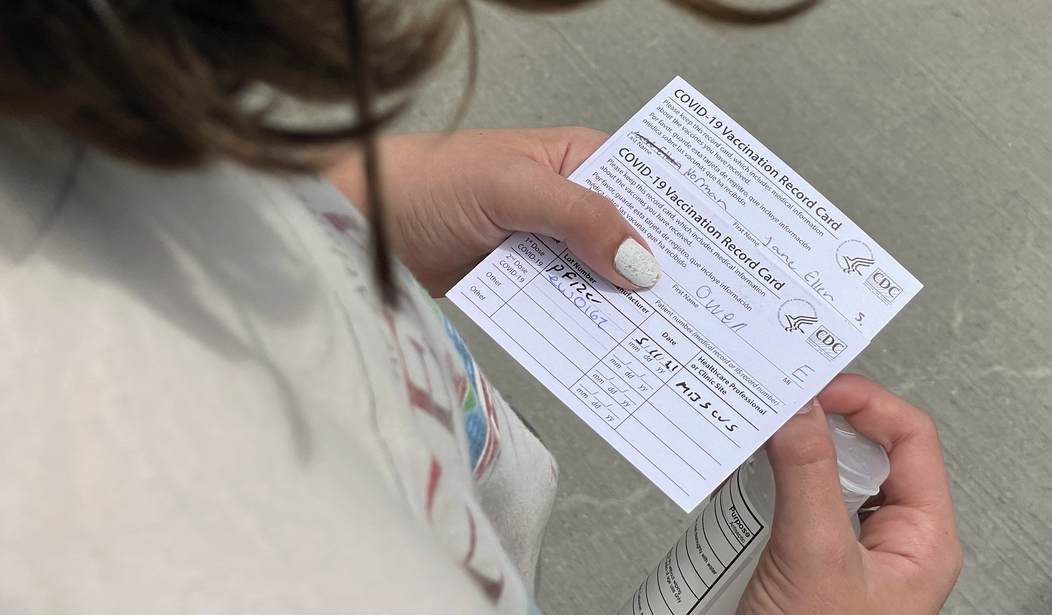As 2021 draws to a close, a new poll released this week shows that Americans’ trust in the government has fluctuated over the past year. In the poll, findings were broken down by vaccinated and unvaccinated individuals. According to data from the Kaiser Family Foundation (KFF), roughly 30 percent of adults are unvaccinated against COVID-19.
A new poll conducted by Axios-Ipsos, released Thursday, shows that unvaccinated Americans’ trust in the government has tanked over the past year. These findings were compiled through a year’s worth of data from the Axios-Ipsos Coronavirus Index.
The survey found that unvaccinated Americans’ trust in government plummeted from 43 percent to 22 percent in the second half of 2021. White unvaccinated Americans, specifically, dropped from 38 percent to 15 percent. Black unvaccinated Americans dropped from 55 percent to 39 percent. Trust among vaccinated white Americans decreased from 62 percent to 56 percent, while vaccinated black Americans decreased from 82 percent to 70 percent. Among vaccinated Americans overall, trust dropped from 67 percent to 60 percent.
“Part of the reason the trust numbers dropped so significantly among the unvaccinated may be that those with higher levels of trust got vaccinated in the summer or fall, leaving a more concentrated population of distrusting people in the unvaccinated category,” the poll write-up explains.
According to the poll, Republicans and black Americans make up two large segments of the unvaccinated population. The survey found that both groups are “managing that decision in dramatically different ways.”
Recommended
“Black Americans reported much higher levels of mask use, social distancing and trust in the federal government regardless of their vaccination status. That suggests they take the virus seriously even as many struggle with hesitancy about vaccines and the historical connections to racism and medical experimentation,” the survey write-up stated.
“By contrast, Republicans were far less likely to wear masks and more likely to say they have returned to ‘normal’ pre-COVID life,” the write-up added. Findings showed that 81 percent of black Americans and 34 percent of unvaccinated white Americans say they were wearing masks outside the home “some or all of the time” in the second half of 2021.
“As Omicron spreads through the country, the groups that are going to be hit the hardest are going to be these white, unvaccinated populations who have essentially stopped taking precautions and have returned to their ordinary lives,” Ipsos pollster and Senior Vice President Chris Jackson said in the write-up.
A separate KKF quick response survey published this week found that data compiled Dec. 15 to Dec. 20 shows that the emergence of the Omicron variant had little effect on unvaccinated adults. In the findings, 12 percent of unvaccinated adults said Omicron makes them “more likely” to get vaccinated, while 87 percent said the opposite. Among vaccinated, unboosted adults, 54 percent said Omicron makes them “more likely” to get a booster while 46 said it makes them “not more likely.”
For the Axios-Ipsos poll, data from the first half of the year sample covers waves fielded between Jan. 8 to June 28 with 14,566 American adults. Data from the second half of the year sample covers waves fielded between July 16 to Dec. 13 with 11,431 American adults. The margin of sampling error for both samples is plus or minus 2 percentage points.
























